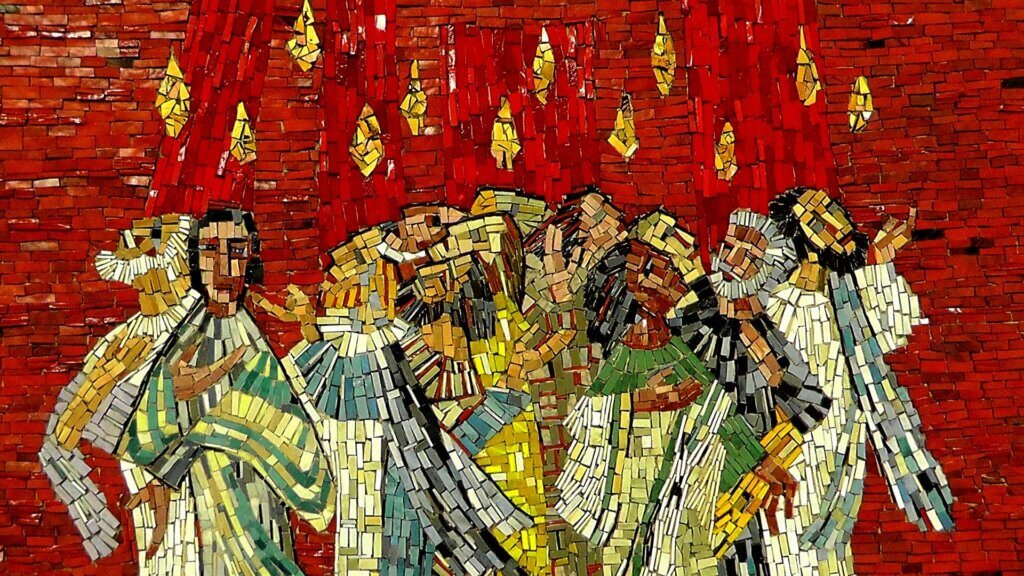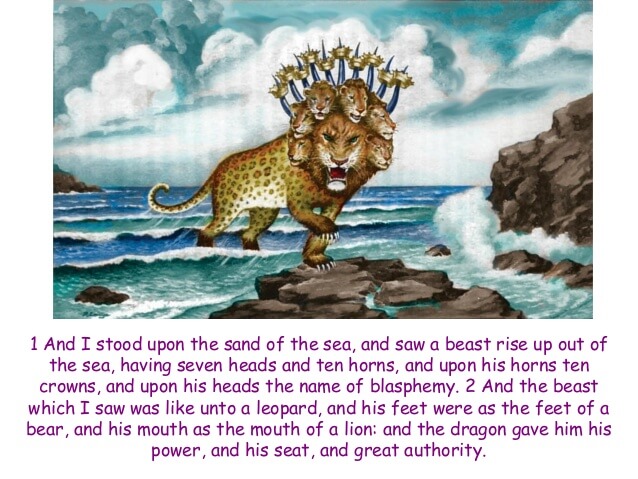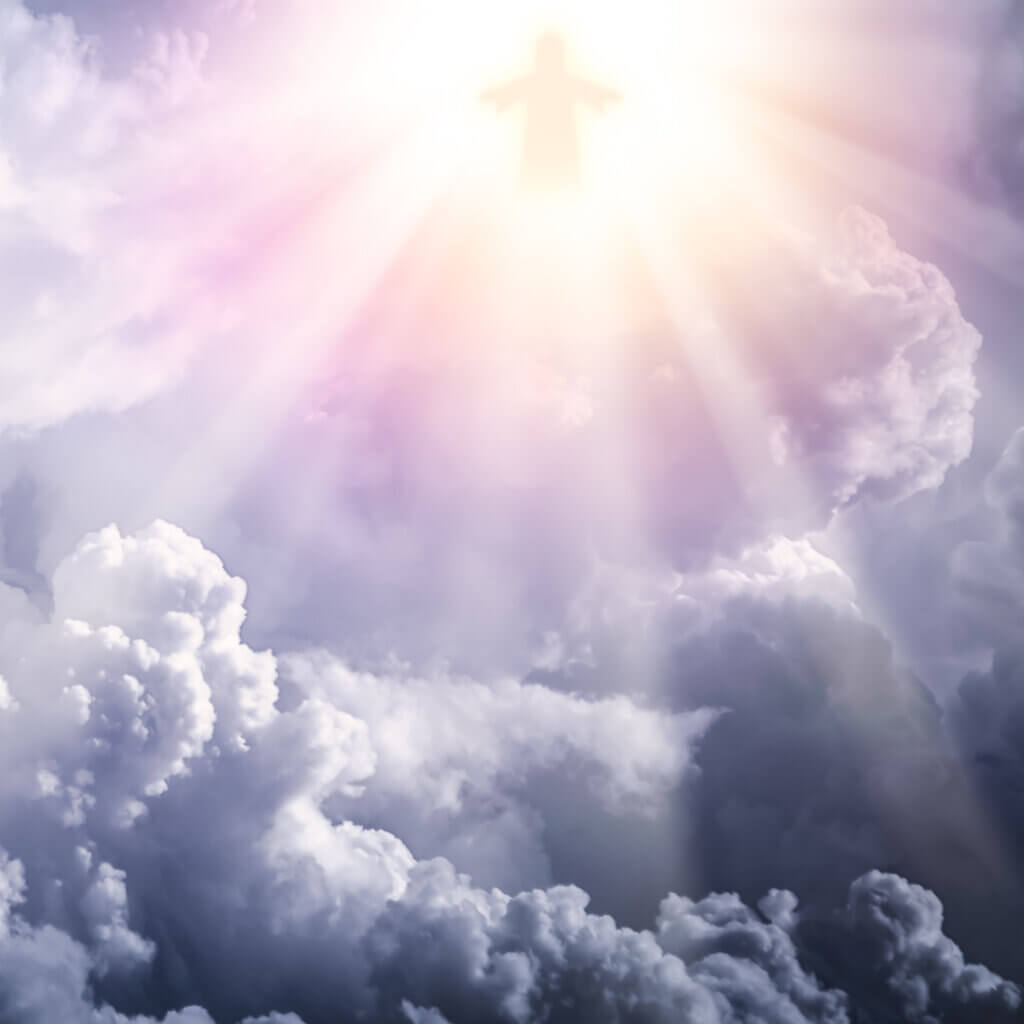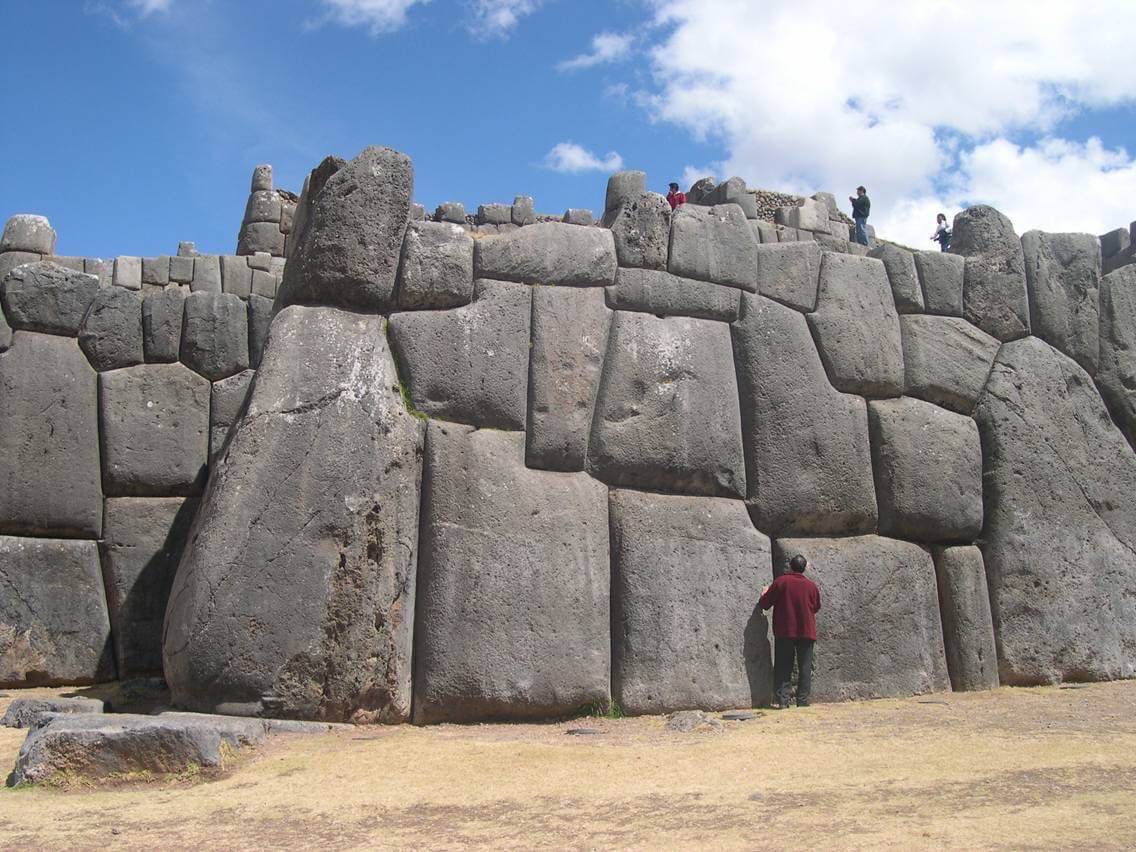From Frame 5:15
John MacArthur explains Continuationist vs. Cessationist
“I think the argument is when you read the chapter and you see how unique the apostles were and when they passed away what finality that was; that defines cessationism when you cease to have apostles you cease to have the signs that were unique to the apostles. So when someone says he’s Cessationist…[he doesn’t] mean the Holy Spirit ceased to work or Christ ceased to work. I only mean that the things that attended the apostles have ceased when the apostles ceased.” -John MacArthur
[Host]
“One of the arguments I’ve made is that every charismatic except the really bizarre quirky ones if you take the better charismatics the ones whose theology are more on the sound end of the spectrum they’re all Cessationists as well because and in fact they would admit this. Wayne grudem says contemporary prophecy the prophecies we’re hearing today are fallible; everybody would acknowledge that the tongues people speak today are not like the tongues at Pentecost, they’re not translatable languages. So clearly something has changed and unless you want to deny that you’ve embraced the kind of Cessationism.” – Interviewer
[John MacArthur resumes]
“Yeah you just put your finger on what I think is the knockout punch in the final chapter of the book. The last chapter is an open letter to my continuationist friends—and my continuation friends are my friends even friends theologically in many cases, and they want to be continuationist. But in that chapter and exactly what Phil said is the case:
1) they believe in tongues that aren’t languages whereas clearly in the New Testament they were languages.
2) they believe in miracles that aren’t necessarily like the miracles Jesus and the apostles did.
3) and they say that they believe in revelation divine revelation but not infallible revelation.
So, they have miracles that aren’t the same as the New Testament miracles; terms that aren’t the same as the New Testament tongues; prophecies that aren’t the same as the New Testament prophecies; that’s not continuation that is cessation and inventing something else.
So, we need to come up with a new name for them, you know they are “inventionists”. I don’t know what but that that is not a continuity— once you say it’s not what was then you’re not really a continuationist. So I try to back them into a corner and make them admit that they’re not really continuationist but rather they’re guilty of putting the stamp of divine approval and labeling the work of the Holy Spirit on things that have no biblical parallel.”-John MacArthur
Does 1 Corinthians 1:7 and 1 Corinthians 13:10 prove Continuance of the Revelatory Gifts?
4 I thank my God always concerning you for the grace of God which was given to you by Christ Jesus,
5 that you were enriched in everything by Him in all utterance and all knowledge,
6 even as the testimony of Christ was confirmed in you,
7 so that you come short (ὑστερεῖσθαι) in no gift (μηδενὶ χαρίσματι), eagerly waiting for the revelation of our Lord Jesus Christ,
8 who will also confirm you to the end, that you may be blameless in the day of our Lord Jesus Christ.
9 God is faithful, by whom you were called into the fellowship of His Son, Jesus Christ our Lord.
10 Now I plead with you, brethren, by the name of our Lord Jesus Christ, that you all speak the same thing, and that there be no divisions among you, but that you be perfectly joined together in the same mind and in the same judgment.
11 For it has been declared to me concerning you, my brethren, by those of Chloe’s household , that there are contentions among you.
…
22 For Jews request a sign, and Greeks seek after wisdom; (1 Cor. 1:4-11, 22 NKJ)
Continualists claim the words “ANY [3367 μηδείς medeis lit., not one] GIFT” in 1 Corinthians 1:7 requires all gifts remain till our LORD comes. However, that does not logically follow because then those manifesting those gifts would continue till Christ come also. The verse does not separate them. However, Paul only spoke about their present situation without regard to the future, the verb 5302 ὑστερέω hustereo is in the present tense. At that time they were like all other churches, not behind in spiritual gifts, as they eagerly waited for the LORD.
Nor does “[God] will also confirm you to the end” imply the gifts will continue because the apostle always wrote as though Christ would return soon even though he knew it could be a long time off (Mt. 24:42-51). Moreover, this “confirmation” must refer to something apart from the revelatory gifts as both those who manifested gifts and those who wanted to forbid some of them (1 Cor. 14:39) receive this promised confirmation.
Rather than “Continualism”, the entire epistle implies Cessationism, that the tide of gifts was ebbing and that caused divisions among the majority “have nots” against the minority of “haves”. Paul’s reference to those “who seek wisdom versus those who seek signs” also implies this general division (1 Cor. 1:22). The “have-nots” must have been the majority because only a majority could successfully “forbid the speaking of tongues” compelling Paul’s direct intervention (1 Cor. 14:39). Most of the epistle treats other concerns. In context Paul’s greeting has the appearance of “reassurance” not to believe the ebbing gifts indicated God was displeased with them. On the contrary, the same situation was evident in other churches.
Paul devotes almost an entire chapter to end the schism caused by the ebbing of the gifts, rising to the defense of those suffering spiritual abuse because of their lack of gifts. As God gifts as He wills it is not their fault:
4 There are diversities of gifts, but the same Spirit.
5 There are differences of ministries, but the same Lord.
6 And there are diversities of activities, but it is the same God who works all in all.
7 But the manifestation of the Spirit is given to each one for the profit of all:
8 for to one is given the word of wisdom through the Spirit, to another the word of knowledge through the same Spirit,
9 to another faith by the same Spirit, to another gifts of healings by the same Spirit,
10 to another the working of miracles, to another prophecy, to another discerning of spirits, to another different kinds of tongues, to another the interpretation of tongues.
11 But one and the same Spirit works all these things, distributing to each one individually as He wills.
12 For as the body is one and has many members, but all the members of that one body, being many, are one body, so also is Christ.
13 For by one Spirit we were all baptized into one body– whether Jews or Greeks, whether slaves or free– and have all been made to drink into one Spirit.
14 For in fact the body is not one member but many.
15 If the foot should say, “Because I am not a hand, I am not of the body,” is it therefore not of the body?
16 And if the ear should say, “Because I am not an eye, I am not of the body,” is it therefore not of the body?
17 If the whole body were an eye, where would be the hearing? If the whole were hearing, where would be the smelling?
18 But now God has set the members, each one of them, in the body just as He pleased.
19 And if they were all one member, where would the body be?
20 But now indeed there are many members, yet one body.
21 And the eye cannot say to the hand, “I have no need of you”; nor again the head to the feet, “I have no need of you.”
22 No, much rather, those members of the body which seem to be weaker are necessary.
23 And those members of the body which we think to be less honorable, on these we bestow greater honor; and our unpresentable parts have greater modesty,
24 but our presentable parts have no need. But God composed the body, having given greater honor to that part which lacks it,
25 that there should be no schism in the body, but that the members should have the same care for one another.
26 And if one member suffers, all the members suffer with it; or if one member is honored, all the members rejoice with it.
27 Now you are the body of Christ, and members individually.
28 And God has appointed these in the church: first apostles, second prophets, third teachers, after that miracles, then gifts of healings, helps, administrations, varieties of tongues.
29 Are all apostles? Are all prophets? Are all teachers? Are all workers of miracles?
30 Do all have gifts of healings? Do all speak with tongues? Do all interpret? (1 Cor. 12:4-30 NKJ)
That would explain why Paul felt compelled to discuss the cessation of these gifts in 1 Corinthians 13:8-13, they were already ceasing causing divisions in the church (1 Cor. 12:3-12). It is noteworthy he begins this discussion reminding Corinthians of their former occult practices and how it led them by the nose to idols who can neither speak or hear (1 Cor. 12:1-3), and giving them objective means by which to identify when a demon spirit was inspiring the prophecy (1 Cor. 12:4). After Pastoring to restore unity in the body, Paul seeks to lessen their dismay over the ceasing of the revelatory gifts noting that was always inevitable.
Paul believed Christ might return in the 1st century. Therefore, the implied date for the cessation of tongues prophecy and [supernatural] knowledge is the 1st century.
8 Love never fails. But whether there are prophecies, they will fail; whether there are tongues, they will cease; whether there is knowledge, it will vanish away.
9 For we know in part and we prophesy in part.
10 But when that which is perfect (5046 τέλειος teleios) has come, then that which is in part (3313 μέρος meros) will be done away.
11 When I was a child, I spoke as a child, I understood as a child, I thought as a child; but when I became a man, I put away childish things.
12 For now we see in a mirror, dimly, but then face to face. Now I know in part, but then I shall know just as I also am known.
13 And now abide faith, hope, love, these three; but the greatest of these is love. (1 Cor. 13:8-13 NKJ)
Continualists misread this text, what must remain until the teleios is the meros, not any particular item in it.
Paul did not say WHEN prophecies tongues and [supernatural] knowledge would cease, he only says “it will happen” once the “complete revelation” arrives possibly in the 1st century. Paul only says there is no need for partial revelation once the complete has arrived. Just as childhood things are no longer needed in adulthood.
To illustrate, Paul is not promising the continuance of these gifts: Some in the audience had ice cream cones that were melting in the hot sun. They were sad about this, so Paul consoles them: “When the ice cream factory comes, which only sells ice cream by the gallon, ice cream cones will cease, vanish, be done away. No one will miss the partial portions of ice cream once the complete portions have arrived.”
Paul’s three-two arrangement confirms this.
8) prophecies tongues knowledge: 9)know in part, prophesy in part
11) spoke…understood….thought as a child: became a man, put away childish things
12) see in a mirror dimly, then face to face; know in part: know… as I am known
13) Now abide faith hope love: but the greatest is love. Love is repeated twice.
As neither “faith” nor “hope” are revelatory gifts verse 13 does not imply continuance, rather this reinforces the universal thought of “cessation.” No need for “faith in” and “hope for” the Kingdom to come after it has arrived. Only love remains.
Therefore, in context Paul seems to be saying “Pursue love because it will remain unlike prophecy tongues and knowledge (which are failing), but while these are still available like faith and hope, desire them to edify the church.
1 Pursue love, and desire spiritual gifts, but especially that you may prophesy.
2 For he who speaks in a tongue does not speak to men but to God, for no one understands him; however, in the spirit he speaks mysteries.
3 But he who prophesies speaks edification and exhortation and comfort to men. (1 Cor. 14:1-3 NKJ)
The NT is a “non-charismanic book”, the universal born-again experience was manifested by the 3000 saved on the Day of Pentecost, and it is precisely what believers manifest today. No mention of tongues or prophecy, rather the “outward physical evidence” is a changed heart, sincere devotion to God’s Word and love for their fellow believers:
38 Then Peter said to them, “Repent, and let every one of you be baptized in the name of Jesus Christ for the remission of sins; and you shall receive the gift of the Holy Spirit.
39 “For the promise is to you and to your children, and to all who are afar off, as many as the Lord our God will call.”
40 And with many other words he testified and exhorted them, saying, “Be saved from this perverse generation.”
41 Then those who gladly received his word were baptized; and that day about three thousand souls were added to them.
42 And they continued steadfastly in the apostles’ doctrine and fellowship, in the breaking of bread, and in prayers.
43 Then fear came upon every soul, and many wonders and signs were done through the apostles.
44 Now all who believed were together, and had all things in common,
45 and sold their possessions and goods, and divided them among all, as anyone had need.
46 So continuing daily with one accord in the temple, and breaking bread from house to house, they ate their food with gladness and simplicity of heart,
47 praising God and having favor with all the people. And the Lord added to the church daily those who were being saved. (Acts 2:38-47 NKJ)
Passages cited FOR the gift of tongues (Ac. 10:46-47; 19:4-7) actually prove how unusual it was, for these are cited as signs. In the first that the Way was open to Gentiles (Ac. 11:1-18), and the second that salvation can occur only in the name of Jesus (Ac. 19:3-6; 4:12).
That these gifts passed from the scene as the New Testament was being written is clear from a chronological survey of the data. About 67 A.D. these special revelatory gifts are spoken of in the past tense:
3 How shall we escape, if we neglect so great salvation; which at the first began to be spoken by the Lord, and was confirmed unto us by them that heard him;
4 God also bearing them witness, both with signs and wonders, and with divers miracles, and gifts of the Holy Ghost, according to his own will? (Heb 2:3-4 KJV)
We see the “timeline of cessation” quite clearly in this survey of the NT data. While some will object “this is an argument from silence, therefore unsound”, that wouldn’t apply when “silence is impossible”. The NT writers made it a point to record all extra-ordinary events, it is impossible they not do so. To illustrate this principle, if a body is silent for hours not breathing, to a high degree of probability it is dead, a corpse. That deduction would not be unsound.
Pentecost was the time of maximum manifestation of the special gifts. If we calculate those present on that day, 120 receive the gifts while 3,000 do not (120/3120=.038) only 4% of the church manifested these gifts. Everything in the NT indicates this percentage decreased as the Bible grew, as Holy Scripture began to take the place of the revelatory gifts.
A.D.30 According to Scripture only 3.85% (120/(3000+120)) percent of believers spoke in tongues when they received the Holy Spirit on the Day of Pentecost-Acts 1:15, 2:1ff; 41-47.
A.D.49 Paul lists fruits of the Spirit rather than special gifts-Galatians 5:2-23.
A.D.51 Timothy brings Paul news about faith and love, not charismata-1 Thessalonians 3:6.
A.D.51 Paul says love is evidence of God’s choosing, not special gifts-2 Thessalonians 1:3-5.
A.D.51 “May the Lord direct your hearts into God’s love and Christ’s perseverance.”-2 Thessalonians 3:5 NIV
A.D.53 The unusual is recorded: Twelve followers of John the Baptist receive the Holy Spirit and speak in tongues and prophesy-Acts 19:1-7.
A.D.55 Paul appeals to the Corinthians desire to excel in every sign of spirituality to add to their zeal generosity 2 Corinthians 8:7.
A.D.55 New birth confirms one is in Christ, not revelatory gifts-2 Corinthians 5:17.
A.D.55 Paul exhorts unto righteousness and holiness, not revelatory gifts-2 Corinthians 7:1.
A.D.56, Only prophecy is mentioned in a way that implies it is rare and the other gifts surprisingly are not named at all-Romans 12:4-13.
A.D.60 The absence here of revelatory gifts in this context is very conspicuous; it should be here in a number of places. The text lists prophets with apostles, signifying they are few in number-Ephesians 4:2-5:21.
A.D.60 This context would have been perfect to mention the revelatory gifts, he doesn’t Colossians 2:9-18.
A.D.60 Paul neither hears about revelatory gifts nor does he pray for Philemon to receive them-Philemon 1:4-7.
A.D.62 Renewing of the Holy Ghost connected to holy lifestyle and God’s grace, not gifts-Titus 3:1-8.
A.D.62 Revelatory gifts not part of the requirements for the office of overseer or deacon-1 Timothy 3:2-13.
A.D.62 Paul had to exhort Timothy to use his gift (ministry? cp. 2 Tim. 1:6f) and the example he is to set is for holy living, not gift seeking-1 Timothy 4:12-16.
A.D. 62 Neither Paul or others can heal Timothy: Drink no longer water, but use a little wine for thy stomach’s sake and thine often infirmities. (1Ti 5:23 KJV)
A.D.67 The special gifts are referred to in the past tense-Hebrews 2:3-4. [That is consistent with tongues being a sign to the Jews 1 Cor. 14:20-22 that would organically end with the 70 A.D. destruction of all alternatives to Jesus’ sacrifice with the destruction of the Temple with all its genealogical records necessary for Mosaic sacrifice and identification of the Messiah].
A.D.67 Spur one another unto love and good deeds, not tongues-Hebrews 10:24-25.
A.D.67 Peter does not mention these gifts amongst those who share the divine nature and this is in contrast to the false prophets in next chapter-2 Peter 1:4-9.
A.D.90 God’s love shown not by gifts but by Christ ransom sacrifice-1 John 4:9-10.
A.D.90 Evidence of having the Spirit is love and true doctrine-1 John 4:12-17.
Some argue Revelation may have been written as early as A.D.68 If the earlier date is accepted, it would better fit our survey chronicling the cessation of these gifts for they seem to have ceased about this time.
A.D.94 The seven churches in the book of Revelation make no mention of these revelatory gifts at all, only to a false prophetess called Jezebel (Rev. 2:20f).
A.D.94 Testimony of Jesus is spirit of prophecy-Revelation 19:10.
A.D.94 If prophecy were still in operation in the church, Revelation 22:18 would not forbid adding to the book.
A.D.94 Ethical imperatives not gift seeking-Revelation 22:11.
Satan has been known to step into a Christian void (John 14:30). With the decline of true Prophets the false increased. (2 Cor. 11:3-12:13) They became numerous enough to upset the Church to the point where believers were despising prophecy altogether. About A.D.51, five years before Paul wrote 1 Corinthians Paul had to stop the Thessalonians from despising prophecy. Notice Paul calls for testing it which implies enough of it was false prophecy to make the Thessalonians despise it:
20 Do not despise prophecies.
21 Test all things; hold fast what is good.
22 Abstain from every form of evil. (1 Thess. 5:20-22 NKJ)
This was probably the reason why the majority in Corinth wanted to forbid speaking in tongues (1 Cor. 14:29; cp. 2 Pet. 1:20-2:1ff).” By A.D.90 the apostle John says: “do not believe every spirit, but test the spirits, whether they are of God; because many false prophets have gone out into the world. (1 Jn. 4:1 NKJ)
Although this is an “apples to oranges” comparison (what is true of an Apostle many not be true of ordinary believers), parallel to the decline of the revelatory gifts is the ebbing of miraculous healing in Paul’s ministry. Around 60 A.D. while Paul was in Ephesus we read God worked “unusual miracles” by the hands of Paul:
11 Now God worked unusual miracles by the hands of Paul,
12 so that even handkerchiefs or aprons were brought from his body to the sick, and the diseases left them and the evil spirits went out of them. (Acts 19:11-12 NKJ)
However, not too long after this Paul evidently cannot heal his fellow worker Epaphroditus nor did he do anything for Timothy’s “frequent infirmities” and still later we read Paul had to leave Trophimus behind in Miletus when he got sick:
25 Yet I considered it necessary to send to you Epaphroditus, my brother, fellow worker, and fellow soldier, but your messenger and the one who ministered to my need;
26 since he was longing for you all, and was distressed because you had heard that he was sick.
27 For indeed he was sick almost unto death; but God had mercy on him, and not only on him but on me also, lest I should have sorrow upon sorrow. (Phil. 2:25-27 NKJ)
No longer drink only water, but use a little wine for your stomach’s sake and your frequent infirmities. (1 Tim. 5:23 NKJ)
Erastus stayed in Corinth, but Trophimus I have left in Miletus sick. (2 Tim. 4:20 NKJ)
Acts 28:3-8 doesn’t contradict this ebbing of Paul’s healing ministry, it clearly is a special case being an entirely new mission field and God stepped in to save his life.
To sum up, the cessation of the revelatory gifts can be deduced from the New Testament data where Paul doesn’t mention tongues again after 1 Corinthians, and prophecy only once in Romans in a context that is consistent with the ebbing of these gifts. The absence of tongues and interpretation of tongues is glaring:
4 For as we have many members in one body, but all the members do not have the same function,
5 so we, being many, are one body in Christ, and individually members of one another.
6 Having then gifts differing according to the grace that is given to us, let us use them: if prophecy, let us prophesy in proportion to our faith;
7 or ministry, let us use it in our ministering; he who teaches, in teaching;
8 he who exhorts, in exhortation; he who gives, with liberality; he who leads, with diligence; he who shows mercy, with cheerfulness.
9 Let love be without hypocrisy. Abhor what is evil. Cling to what is good (Rom. 12:4-9 NKJ)
Nor do tongues appear in any of the Bible books written later. John doesn’t mention togues, Jude doesn’t mention tongues. Tongues seem to vanish until the second century Montanus cult.
It is reasonable to deduce these revelatory gifts became redundant as the Scripture took their place. Scripture is far superior to these revelatory gifts. Whereas prophecies tongues etc. had to be “judged” because “false prophecy” was always present, Holy Scripture can be trusted completely to make the man of God fully equipped for every good work:
16 All Scripture is given by inspiration of God, and is profitable for doctrine, for reproof, for correction, for instruction in righteousness,
17 that the man of God may be complete, thoroughly equipped for every good work. (2 Tim. 3:16-17 NKJ)
END NOTE:
14 Later He appeared to the eleven as they sat at the table; and He rebuked their unbelief and hardness of heart, because they did not believe those who had seen Him after He had risen.
15 And He said to them, “Go into all the world and preach the gospel to every creature.
16 “He who believes and is baptized will be saved; but he who does not believe will be condemned.
17 “And these signs will follow those who believe: In My name they will cast out demons; they will speak with new tongues;
18 “they will take up serpents; and if they drink anything deadly, it will by no means hurt them; they will lay hands on the sick, and they will recover.”
[As individual Pentecostal and Non-Pentecostal believers today DO NOT DO ALL the signs (cast out demons, speak with new tongues, take up serpents, drink deadly poison) must we conclude there are no believers today on planet earth?
Of course not.
There is a transition implied by the context, from believers preached to in the world, to the special group of “believing preachers” Christ is sending thousands and these signs will distinguish them from unbelievers (con men) who feigned belief. Therefore, the pronouns “they, them” in Mark 16:17-18 refer to this group who uniquely establish the Christian faith in all the earth.
The Eleven would know if they truly believe, they would do all the signs that confirmed their word was from God (Comp. Heb. 2:3-4).
After teaching the eleven, the writer confirms the prophecy was fulfilled in the first century Mark 16:19-20). In the NT book of Acts we see Paul claimed to do all these signs of an apostle specially sent by Christ (2 Cor. 12:12; Compare Acts 16:18; 20:9-12; 28:3-5, 8; 1 Cor. 14:18).]
19 So then, after the Lord had spoken to them, He was received up into heaven, and sat down at the right hand of God.
20 And they went out and preached everywhere, the Lord working with them and confirming the word through the accompanying signs. Amen. (Mk. 16:13-20 NKJ)
Baptism In The Spirit: The Experience
Was the NT Church like a Modern Pentecostal Church?
Paul’s Teaching about Tongues Ceasing implies they were already ceasing
Have we not prophesied in your Name?
The Coming False Christ and His Followers Revealed








